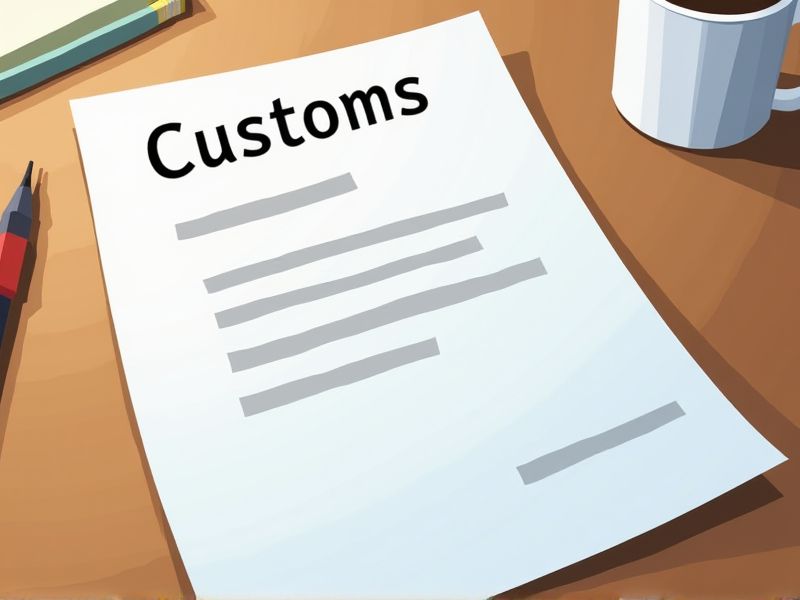
Customs compliance officers play a critical role in ensuring that goods crossing borders adhere to legal and regulatory standards. Certifications provide these officers with the necessary knowledge and skills to navigate complex international trade laws and customs regulations effectively. Certification also enhances credibility and proficiency, helping officers handle intricate compliance challenges with confidence. These are some significant certifications essential for a Customs compliance officer.
Certified Customs Specialist (CCS)
Being a Certified Customs Specialist (CCS) provides a comprehensive understanding of complex customs regulations, which enhances a compliance officer's ability to streamline import and export processes. This certification equips officers with specialized knowledge to mitigate the risks of fines or delays due to errors in documentation or procedure. The training involved in becoming a CCS ensures that compliance officers are up to date with the latest changes and trends in international trade law and practices. Employing a CCS reduces the likelihood of legal challenges by ensuring that all customs activities are compliant with applicable laws and regulations.
Certified Export Specialist (CES)
Obtaining a Certified Export Specialist (CES) designation enhances a Customs compliance officer's understanding of complex export regulations. With CES training, they can effectively navigate international trade laws, minimizing the risk of non-compliance penalties. This specialized knowledge ensures accurate and efficient processing of export documentation. As global trade regulations evolve, CES-equipped officers are better prepared to adapt and maintain compliance standards.
Customs-Trade Partnership Against Terrorism (C-TPAT) Certification
C-TPAT Certification helps Customs Compliance Officers enhance security along the international supply chain, leading to a reduction in potential terrorist threats. Certification fosters stronger partnerships between customs and the business community, which results in more effective monitoring and control of trade activities. Having a certified status ensures faster processing times at customs, reducing trade disruptions and thereby improving the import/export operations. It builds trust in international trade, enhancing the predictability and reliability of the global trading system.
Authorized Economic Operator (AEO) Certification
AEO certification enhances global trade security by streamlining customs procedures and fostering compliance. Customs compliance officers who understand AEO frameworks can efficiently navigate international trade regulations. This knowledge results in reduced clearance times and lower inspection-related costs for businesses. Improvement in customs compliance reduces the likelihood of illegal trade activities, benefiting both domestic and international supply chains.
Certificate in International Trade Compliance
A Certificate in International Trade Compliance equips customs compliance officers with essential knowledge on import-export regulations, enhancing their ability to navigate complex laws. This education ensures adherence to international standards, reducing the risk of costly legal violations. Comprehensive training from the certification program empowers officers to efficiently manage documentation, thereby streamlining customs processes. As trade regulations continually evolve, having certified expertise fortifies an organization's capacity to adapt and remain compliant.
Certified Customs Compliance Professional (CCCP)
The increasing complexity of international trade regulations necessitates a Certified Customs Compliance Professional (CCCP) to ensure customs compliance officers stay informed. Compliance officers with CCCP certification significantly reduce the risk of non-compliance penalties for businesses. The trade industry faces frequent legislative updates, and CCCP offers key knowledge to navigate these changes. Efficient and compliant customs processes enhance global business operations, making CCCP an essential credential for officers.
Import/Export Management Certification
Import/Export Management Certification provides customs compliance officers with a comprehensive understanding of international trade laws and regulations, reducing the likelihood of legal infractions. Proficiency in documentation ensures accurate and efficient processing of goods, minimizing delays at border checkpoints. Certification enhances capability to identify and mitigate risks associated with global transactions, safeguarding national security. Knowledge gained allows officers to assist businesses in navigating complex customs requirements, promoting smoother trade operations.
Global Trade Management Certification
A Global Trade Management Certification equips a Customs compliance officer with knowledge of international trade regulations, enhancing their ability to navigate complex import and export laws. This certification provides a comprehensive understanding of tariffs and trade agreements, critical for ensuring compliance and avoiding costly penalties. By obtaining this credential, officers can improve efficiency in customs processes, reducing delays in the supply chain. Certification leads to a stronger grasp of global market trends, enabling officers to make informed decisions in dynamic trade environments.
Supply Chain Security Professional Certification
For a Customs compliance officer, the Supply Chain Security Professional Certification ensures a comprehensive understanding of global security standards, facilitating smoother cross-border trade operations. This certification enhances the ability to identify and mitigate risks, thereby reducing incidences of smuggling and counterfeit goods. With structured knowledge on security protocols, officers can efficiently enforce compliance with international trade regulations. Holding such a certification often results in increased trust from stakeholders, fostering better cooperation between customs agencies and private businesses.
Hazardous Materials Transportation Certification
Customs compliance officers require Hazardous Materials Transportation Certification to accurately classify and handle shipments containing dangerous goods. Without proper certification, officers might incorrectly process such materials, leading to potential legal and safety violations. Proper certification ensures they can efficiently mitigate risks associated with hazardous material shipments, which reduces the likelihood of accidents. It is essential to maintain international shipping standards and agreements, enhancing global trade safety and reliability.
Summary
When you as a Customs compliance officer obtain certifications, your expertise in regulatory frameworks significantly increases. This can lead to more accurate and efficient processing of imports and exports, reducing delays and errors. Your enhanced credibility may foster stronger relationships with trade partners and industry stakeholders. Over time, you contribute to streamlined operations and improved organizational compliance.
